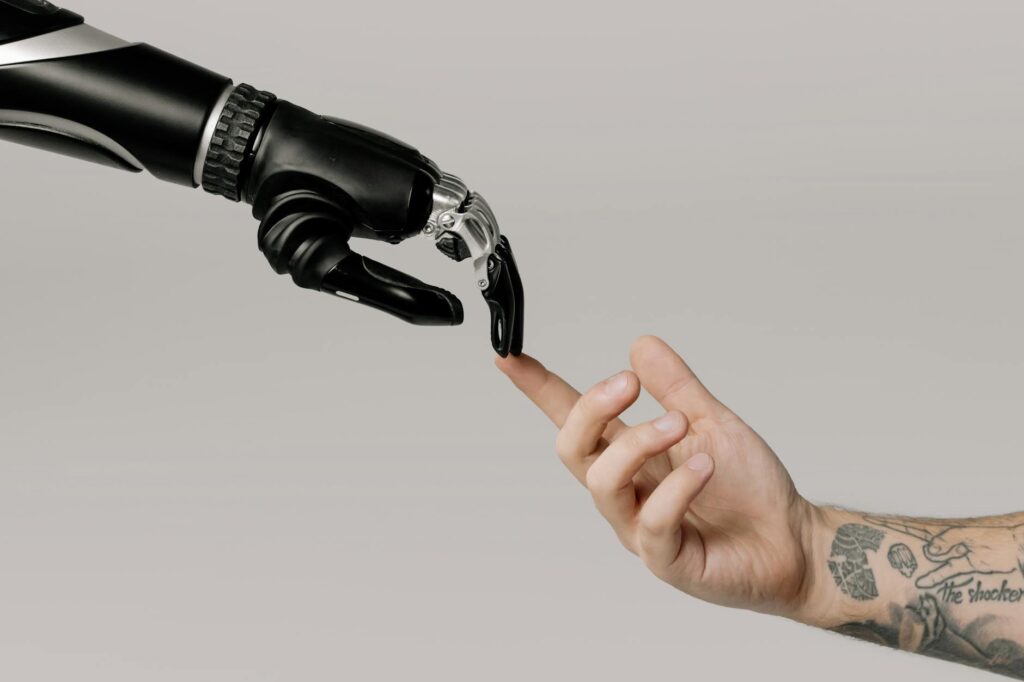The Download: a “dire wolf” revival, and safeguarding AI companions

Game of clones: Colossal’s new wolves are cute, but are they dire?
For several years now, Texas-based company Colossal Biosciences has been in the news for its plans to re-create woolly mammoths someday. But now it’s making a bold new claim—that it has actually “de-extincted” an animal called the dire wolf.
Dire wolves were large, big-jawed members of the canine family. More than 400 of their skulls have been recovered from the La Brea Tar Pits in California. Ultimately they were replaced by smaller relatives like the gray wolf.
In its effort to re-create the animal, Colossal says, it extracted DNA information from dire wolf bones and used gene editing to introduce some of those elements into cells from gray wolves. It then used a cloning procedure to turn the cells into three actual animals.
But some scientists reject the company’s claim that the new animals are a revival of the extinct creatures, since in reality dire wolves and gray wolves are different species separated by a few million of years of evolution and several million letters of DNA. Read the full story.
“Antonio gifted.”
AI companions are the final stage of digital addiction, and lawmakers are taking aim
This week, California state senator Steve Padilla will make an appearance with Megan Garcia, the mother of a Florida teen who killed himself following a relationship with an AI companion that Garcia alleges contributed to her son’s death.
The two will announce a new bill that would force the tech companies behind such AI companions to implement more safeguards to protect children. The design of these AI characters makes lawmakers’ concern well warranted. The problem: companions are upending the paradigm that has thus far defined the way social media companies have cultivated our attention and replacing it with something poised to be far more addictive. Read the full story.
—James O’Donnell
This story originally appeared in The Algorithm, our weekly newsletter on AI. To get stories like this in your inbox first, sign up here.
The must-reads
I’ve combed the internet to find you today’s most fun/important/scary/fascinating stories about technology.
1 The Trump administration’s tariffs are already starting to bite startups
VC funding, acquisitions and unnecessary spending has been put on hold. (The Information $)
+ Modular laptop company Framework is pausing its sales in the US. (Ars Technica)
+ Towns near the Canadian border are feeling the squeeze. (The Atlantic $)
+ China has vowed to fight the measures ‘to the end.’ (FT $)
2 Elon Musk asked Trump to reverse his aggressive tariffs
But the billionaire’s pleas have fallen on deaf ears. (WP $)
+ It’s not surprising he’s refusing to follow the markets on his policies. (The Mag $)
+ CEOs are starting to speak up about the reality of a global trade war. (WSJ $)
3 Renewable energy reached record heights last year
It accounted for 32% of global electricity in 2024. (Reuters)
+ Lawyers are turning to the courts to force governments to save the planet. (The Guardian)
4 A Meta executive has denied claims it fudged Llama 4’s benchmark scores
Ahmad Al-Dahle dismissed the rumor Meta had trained its models on test sets. (TechCrunch)
+ These new AI benchmarks could help make models less biased. (MIT Technology Review)
5 A baby has been born in the UK to a woman with a transplanted womb
Grace Davidson gave birth to her daughter thanks to her sister’s womb donation. (BBC)
+ The operation’s success offers new hope to those born without a womb. (The Guardian)
+ Everything you need to know about artificial wombs. (MIT Technology Review)
6 The US is still ahead in the AI race—for now
But training all those models is still seriously expensive. (IEEE Spectrum)
7 We know very little about how bird flu spreads in wildlife
As the deaths of two cougars who weren’t living near any known outbreaks illustrate. (Undark)
8 This publishing platform uses AI to create sequels to its authors’ work
The only problem? Its writing isn’t great. (Bloomberg $)
+ AI can make you more creative—but it has limits. (MIT Technology Review)
9 SimCity 4 refuses to die
A thriving community of modders are keeping the game going more than two decades after its launch.(The Verge)
10 Architects in Maui are building homes from old surfboard scraps 🏄
Turns out the foam makes excellent housing insulation. (Fast Company $)
Quote of the day
“No longer do I have to drive a symbol of racism, greed and ignorance! Life is suddenly so much better!”
—Actor Bette Middler expresses her joy at selling her Tesla, Insider reports.
The big story

Large language models can do jaw-dropping things. But nobody knows exactly why.
Two years ago, Yuri Burda and Harri Edwards, researchers at OpenAI, were trying to find out what it would take to get a large language model to do basic arithmetic. At first, things didn’t go too well. The models memorized the sums they saw but failed to solve new ones.
By accident, Burda and Edwards left some of their experiments running for days rather than hours. The models were shown the example sums over and over again, and eventually they learned to add two numbers—it had just taken a lot more time than anybody thought it should.
In certain cases, models could seemingly fail to learn a task and then all of a sudden just get it, as if a lightbulb had switched on, a behavior the researchers called grokking. Grokking is just one of several odd phenomena that have AI researchers scratching their heads. The largest models, and large language models in particular, seem to behave in ways textbook math says they shouldn’t.
This highlights a remarkable fact about deep learning, the fundamental technology behind today’s AI boom: for all its runaway success, nobody knows exactly how—or why—it works. Read the full story.
—Will Douglas Heaven
We can still have nice things
A place for comfort, fun and distraction to brighten up your day. (Got any ideas? Drop me a line or skeet ’em at me.)
+ What happened when Wham! took Western pop music to China 40 years ago.
+ Who knew that sharks do make noises after all? 🦈
+ Microsoft is celebrating its 50th anniversary, and with it, 50 seriously strange inventions.
+ What the heck is a prototaxite, anyway?
Discover more from Tamfis Nigeria Lmited
Subscribe to get the latest posts sent to your email.



 Hot Deals
Hot Deals Shopfinish
Shopfinish Shop
Shop Appliances
Appliances Babies & Kids
Babies & Kids Best Selling
Best Selling Books
Books Consumer Electronics
Consumer Electronics Furniture
Furniture Home & Kitchen
Home & Kitchen Jewelry
Jewelry Luxury & Beauty
Luxury & Beauty Shoes
Shoes Training & Certifications
Training & Certifications Wears & Clothings
Wears & Clothings
















